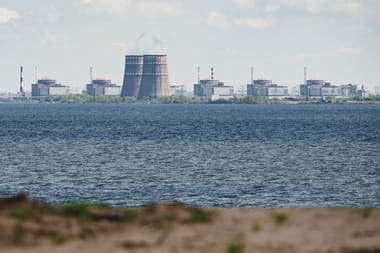
The European Union finally agreed on the details of its latest package of sanctions against Russia — but only after Viktor Orbán's Hungarian government pulled one last trick.
At the 11th hour, Hungary demanded that diplomats meeting to put the finishing touches on the EU's oil ban remove the head of the Russian Orthodox Church from the list of sanctioned individuals.
Patriarch Kirill of Moscow has been criticized for his closeness to Vladimir Putin, and was included in the proposed list of people to be sanctioned in the bloc's sixth round of measures against Russia over its invasion of Ukraine.
In the end, diplomats felt they had no choice but to give in, and Kirill was duly removed from the list.
"We finally adopted 6th sanctions package, crucial for Ukraine and for all of us. Very disappointing and hardly acceptable that the agreement reached by European leaders was not fully respected by some. We will not retreat. I suggest to name [the] 7th package #KGB: Kirill, Gas & Banks," tweeted Arnoldas Pranckevičius, Lithuania's ambassador to the EU.
The Hungarian government insisted Orbán's position on Patriarch Kirill had been well known to other EU countries. Hungary's foreign minister called the process a "long battle" but "worth it," adding that the sanctions package is now in line with the country's national security interests.
But the episode, which follows Orbán holding up progress on the main oil embargo for a month, has left a bitter aftertaste for many countries.
The question is, what can they do to stop him from repeating what one envoy called "Hungarian hostage" tactics in the future?
“Many member states are disappointed with Hungary," another EU diplomat said. "Hungary has lost the last sympathies of its former friends in Central and Eastern Europe with this unnecessary stunt.”
A third diplomat said Hungary would be more isolated as a result of the way it has held up this latest round of EU sanctions.
"Nobody is happy with what happened here," the envoy said. "A lot of grumpiness on all sides, especially with the Poles. They are really done with Hungary now. This doesn't buy you any friends."
For Orbán, however, one thing seems obvious: His tactics worked. He didn't want Russian oil deliveries by pipeline to be included in the EU ban because it would endanger supplies of vital fuels and hit Hungary's economy. So he simply refused to agree to the sanctions until other leaders gave in.
While many grew frustrated with the obstruction, some other countries were happy to shelter privately behind Orbán's more vocal positioning. In the end, he got what he wanted. Pipelines were excluded from the oil ban when EU leaders met in person on Monday to agree to the outline of the deal over dinner.
Then Hungary repeated the successful ploy, raising an objection to Kirill's listing, which critics said had not been mentioned previously.
Another diplomat said that Hungary had the rest of the EU at its mercy. "We were forced to withdraw it," the diplomat said. "For pragmatism, they have agreed to the sixth package without this listing, so that it can come into force quickly."
The prize for the EU is an embargo on Putin's oil exports that falls some way short of what European Commission President Ursula von der Leyen originally said must be a "complete ban."
If countries including Germany and Poland honor their pledges voluntarily to ditch pipeline supplies, the combined impact with the ban on fuel delivered by ship will be to cut oil imports from Russia by about 90 percent.
To get landlocked Hungary on board, leaders decided to restrict the ban to Russian oil that arrives on tankers, temporarily exempting fuel flowing into the EU via pipelines.
With the ambassadors now signing off on the plan, it is on the path to becoming law. No date has been announced for when the temporary exemption will come to an end.
Suzanne Lynch, Giorgio Leali and Barbara Moens contributed reporting.
This article has been updated.



